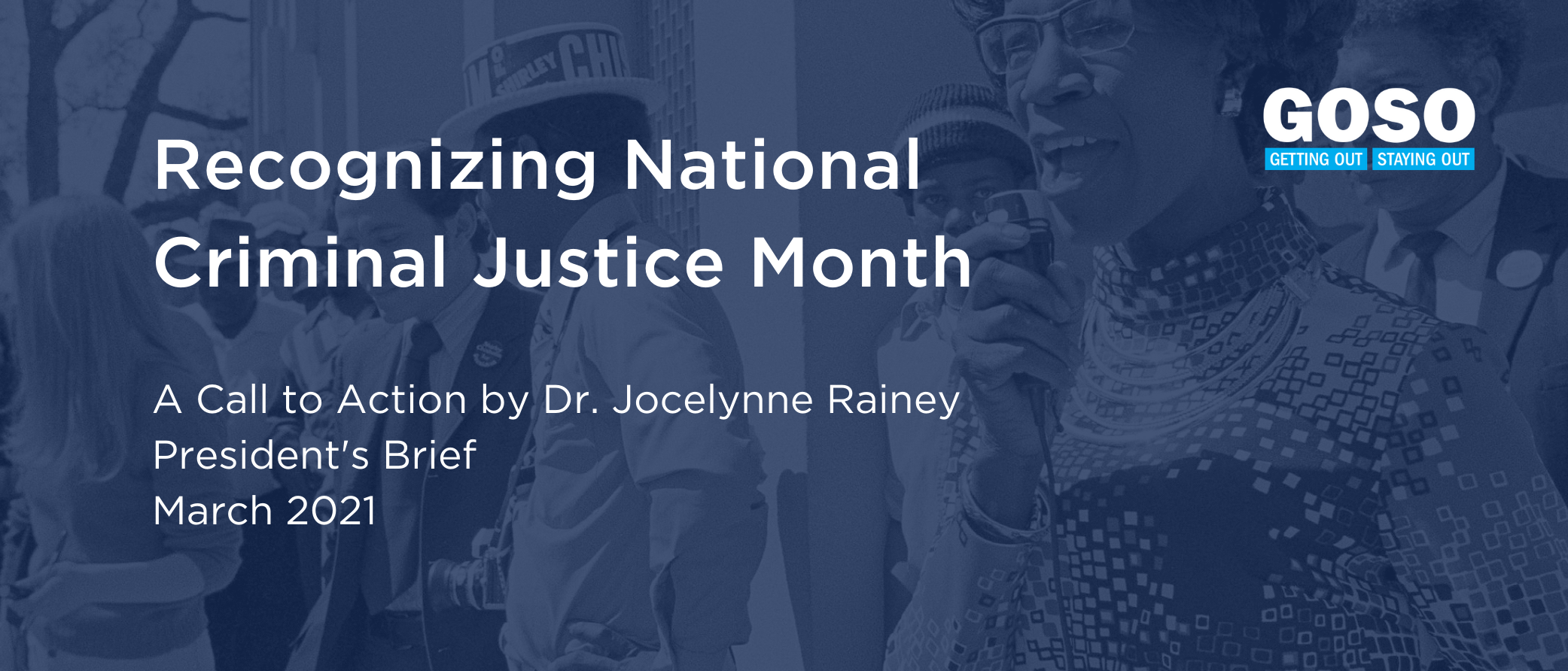Recognizing Criminal Justice Month: March 2021 President’s Brief
America has long been a nation that celebrates the ability to pull oneself up by one’s bootstraps. At GOSO, through our work with young, justice-involved men in New York City, we see the tragic flaw in our notions of success, which was best described by the Rev. Dr. Martin Luther King Jr.: “It’s a cruel jest to say to a bootless man that he ought to lift himself by his bootstraps.”
The month of March is Criminal Justice Month and GOSO will join with people across the nation to amplify our voice for justice transformation and innovative thinking to radically reimagine how to confront the effects of poverty, mental illness, and addiction on people’s lives. In poor and marginalized communities Black and brown people are criminalized for their own suffering. America has punitive policies — often holding people behind bars simply because they lack the financial resources to pay bail. Many of these individuals are not accused of committing violent crimes, and holding them behind bars does not make our streets any safer. What’s more, because of the ways in which we categorize crimes, being in the wrong place at the wrong time can result in a relatively harmless person being charged with a violent offense.
Let’s Make March Matter
This month, we plan to tackle critical issues such as the school-to-prison pipeline, alternatives to incarceration, the criminalization of poverty, and the need to end minimum sentencing for nonviolent offenses.
We’re also calling on justice transformation advocates such as yourself to help us end the cycle of mass incarceration, a system that creates financial benefits for a wealthy few at the expense of the poor and the disenfranchised.
We know the power of effective alternatives to incarceration. With GOSO’s participants experiencing recidivism rates at or below 15%, in comparison to the annual rate of 67% among young men of a similar age group nationwide, our work shows that investments in basic resources, emotional support, and training can help justice-involved young men avoid re-engagement in the justice system and lead fulfilling lives. Change isn’t easy, and may not happen overnight. But let’s use this month to commit to ending one of the most inhumane systems of our times.
Get involved by joining us at our upcoming Criminal Justice Month events and following us on social media.
In Solidarity,
Dr. Jocelynne Rainey
President and CEO
Getting Out and Staying Out
P.S. If you missed my conversation with Dr. C. Nicole Mason, we deep dive on these compounded barriers in THE POVERTY TRAP: Race, Inequality and Incarceration be sure to watch it here.

